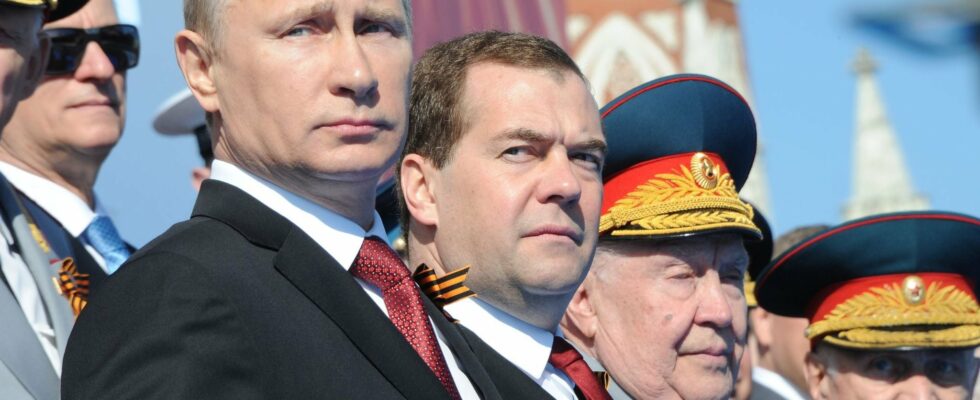If the Russian media and public know one French politician well, it is Marine Le Pen. Not only has she been identified for years as a privileged ally of Moscow, having met Vladimir Putin during the 2017 French presidential campaign, but in recent days, she has been the subject of a multitude of articles on sites close to the Kremlin.
Since the historic score of the National Rally (RN) in the last European elections in France, the media have been excited about a possible accession to power of the party of the deputy from Nord-Pas-de-Calais, relaying the advantageous opinion polls of Lepenist training for early legislative elections.
The opportunity is also too good for these media to comment on the severe defeat of Emmanuel Macron’s party as a result of his foreign policy: the French head of state has been considered for several months as the new bête noire of Russia in Europe in because of its strong support for Ukraine. Pravda title this week that “the ‘war party’ loses its leader in Europe – Macron”, while the Moskovsky Kosmoletsjust as close to power, wrote in one of his analyzes that “the main reason why Macron was defeated was the French’s fear that the president would drag them into war. Today, fewer and fewer French people want to support Ukraine; this support costs too expensive in the country.”
Scholz and Macron, privileged targets
As soon as the results were announced, some Russian officials also made scathing comments, starting with the speaker of the Duma (the lower house of the Russian Parliament), Viacheslav Volodin, who thus called into question the legitimacy of the president French and German Chancellor Olaf Scholz, also weakened by the far right during the European elections. “The shame of Europe, wrote the Russian politician from June 10 on Telegram. Such results were predictable. A stagnant economy, the migration crisis, countries engaging in war in Ukraine against their national interests…”
The president of the Federation Council (the equivalent of the Senate), Valentina Matvienko, did the same. “The fact that in the European elections the leaders of the great countries of the Old Continent – Macron and Scholz – suffered a crushing defeat, once again confirms their failure as national and European politicians”, declared the president on her Telegram channel.
The Kremlin spokesperson was more nuanced, not wishing “meddle in the internal affairs of France,” he declared on June 10. “Contrary to the slander that is sometimes spread in Europe and America, we do not interfere in the internal affairs of other countries.”
Support for Ukraine named as reason for defeat
The former Russian president and vice-president of the Security Council, Dmitri Medvedev, accustomed to salient outings against France, as for him called on the French head of state to resign. “It is time to withdraw. Into the dustbin of history,” he lambasted the day after the results. The latter had already clearly mentioned “having to support ‘non-systemic’ European opposition parties in the European elections” at the beginning of February, clearly raising the threat of Russian interference during this election. In France, the RN clearly appears in this category, even though it has just given the nomination to a large number of legislative candidates judged to be pro-Russian.
For Russia, Emmanuel Macron’s bad luck on the domestic scene is slowly transforming into an argument to criticize the legitimacy of the president in his foreign policy concerning Ukraine. This June 13, Russian Foreign Ministry spokesperson Maria Zakharova apostrophe French diplomacy which had just announced a few days earlier the delivery of Mirage 2000-5 to Ukraine. “Perhaps instead of stirring up society with an imaginary Russian threat and pushing Europe and themselves into war, French leaders would be wiser to tackle pressing domestic problems and consider long-standing unresolved economic, security and migration challenges. On French domestic policy, Russia no longer misses any opportunity to discredit Paris’ support for kyiv.
